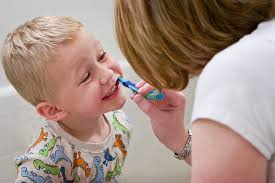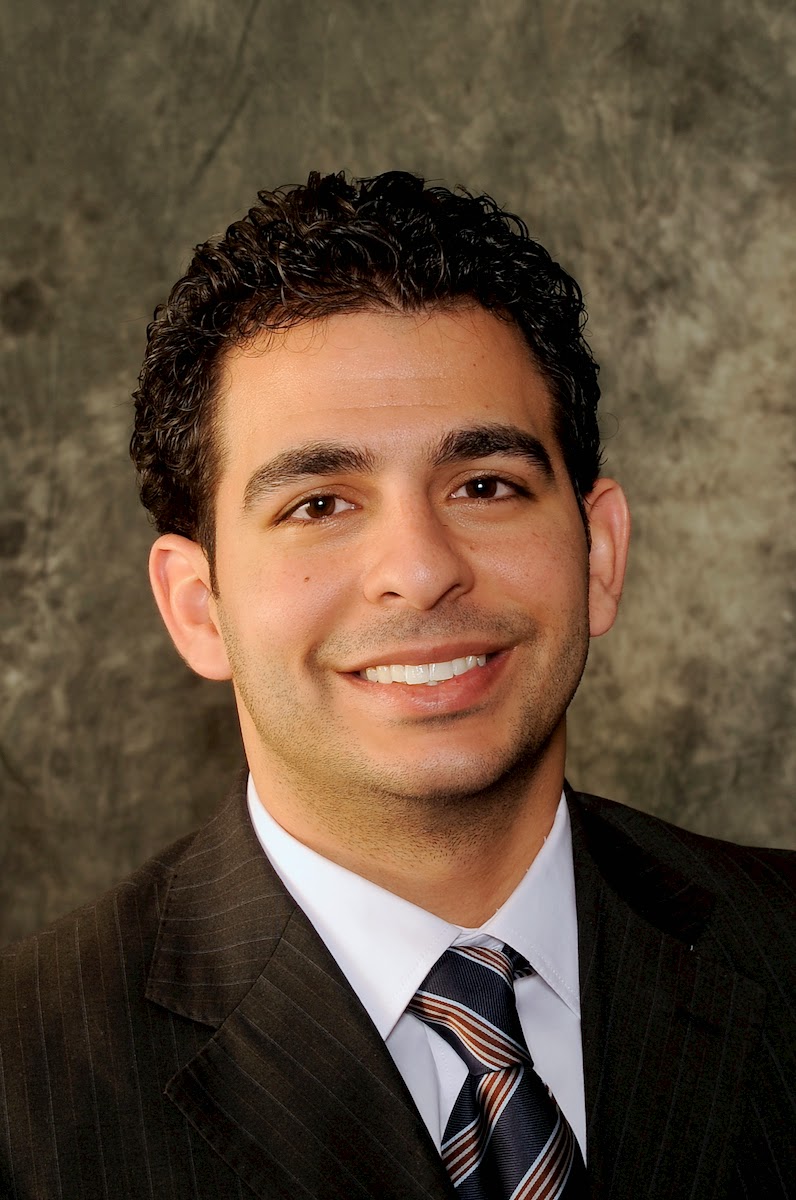Children and Dental Hygiene
- Tooth Decay
-
As you might guess, the number-one dental problem among preschoolers is tooth
decay.
- One out of 10 two- year-olds already have one or more cavities
- By age three, 28% of children have one or more cavities
- By age five, nearly 50% of children have one or more cavities
Teaching Good Dental Habits
The best way to protect your child's teeth is to teach him good dental habits. With the proper coaching he'll quickly adopt good oral hygiene as a part of his daily routine. However, while he may be an enthusiastic participant, he won't yet have the control or concentration to brush his teeth all by himself. You'll need to supervise and help him so that the brush removes all the plaque—the soft, sticky, bacteria- containing deposits that accumulate on the teeth, causing tooth decay. Also, keep an eye out for areas of brown or white spots which might be signs of early decay.
Brushing
As soon as your child has a tooth you should be helping your child brush her teeth two times a day with a smear (size of a grain of rice) of fluoride toothpaste on a child-sized toothbrush that has soft bristles. There are brushes designed to address the different needs of children at all ages, ensuring that you can select a toothbrush that is appropriate for your child.
At age 3 you can start using a pea- size amount of fluoride toothpaste, which helps prevent cavities. If your child doesn't like the taste of the toothpaste, try another flavor. Also try to teach your child not to swallow it, although at this age they are often still too young to learn to rinse and spit. Swallowing too much fluoride toothpaste can make white or brown spots on your child's adult teeth.
You'll hear all kinds of advice on whether the best brushing motion is up and down, back and forth, or around in circles. The truth is that the direction really doesn't matter. What's important is to clean each tooth thoroughly, top and bottom, inside and out. This is where you'll encounter resistance from your child, who probably will concentrate on only the front teeth that he can see. It may help to turn it into a game of "find the hidden teeth." Incidentally, a child cannot brush his teeth without help until he's older—about six to eight years old. So be sure to supervise or do the actual brushing if necessary.
Too Much Sugar
Besides regular toothbrushing with the right amount of fluoride toothpaste, your child's diet will play a key role in his dental health. And, of course, sugar is the big villain. The longer and more frequently his teeth are exposed to sugar, the greater the risk of cavities. "Sticky sugar" foods such as sticky caramel, toffee, gum, and dried fruit—particularly when it stays in his mouth and bathes his teeth in sugar for hours—could do serious damage. Make sure to always brush your child's teeth after a sugary food item. In addition, do not allow your child to have any sugar-containing liquid in a sippy cup for a prolonged period.
Dental Checkups
During regular well-child visits, the pediatrician will check your child's teeth and gums to ensure their health. If she notices problems, she may refer your child to a pediatric dentist (pedodontist) or a general dentist with an interest in treating the dental needs of children. Both the American Academy of Pediatrics and the American Academy of Pediatric Dentistry recommend that all children see a pediatric dentist and establish a "dental home" by age one.
As part of her dental checkup the dentist will make sure all teeth are developing normally and that there are no dental problems and give you further advice on proper hygiene. She also may apply a topical fluoride solution to provide extra protection against cavities. If you live in an area where the water is not fluoridated, she may prescribe fluoride drops or chewable tablets for your toddler. For more guidance on fluoride supplements, talk to your pediatrician. - Source
- Adapted from Caring for Your Baby and Young Child: Birth to Age Five (Copyright © 2009 American Academy of Pediatrics)
The information contained
on this Web site should not be used as a substitute for the medical care and
advice of your pediatrician. There may be variations in treatment that your
pediatrician may recommend based on individual facts and circumstances.
http://www.healthychildren.org/English/healthy-living/oral-health/Pages/Teething-and-Dental-Hygiene.aspx




Comments
Post a Comment